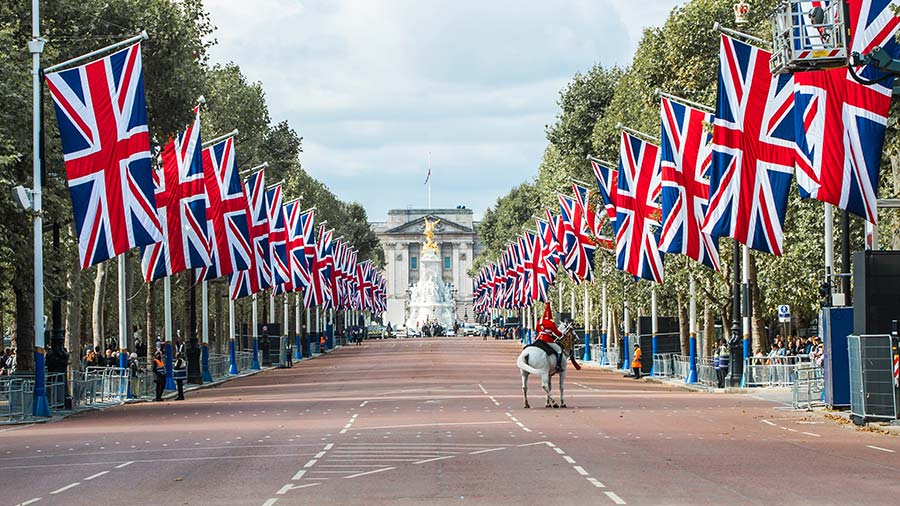Editor’s view: Funeral was a model of good planning and staff
 Pall Mall on the day of Queen Elizabeth II's funeral © AdobeStock/IRStone
Pall Mall on the day of Queen Elizabeth II's funeral © AdobeStock/IRStone Who lives in a house like this? Let’s go through the keyhole.
The funeral of the Queen on Monday 19 September was the fitting culmination to a carefully choreographed period of mourning that attracted an international audience of hundreds of millions.
What lasting impression of our “house” will have been created for outsiders by this brief glimpse into a very special moment in British life?
See also: Editor’s view: Rural respite aided the Queen’s remarkable reign
It will have built or cemented their impression that the United Kingdom is a place that is rich in pageantry, pomp and ceremony, and very attached to tradition – we still lead the world in putting on a show.
Engineering a spectacle that went off like clockwork will have made them think that things run like that here the rest of the time. Which got me thinking – why don’t they?
It should not be surprising that something that has been silently prepared for by some of the best planning minds in the country for at least a decade has a good chance of running smoothly when the time for action arises.
Any manager will also tell you that for a plan to survive its first contact with reality, it also relies on the team entrusted to put it into practice.
Could there have been a more motivated team than the civil service, the armed forces and a senior cadre of bishops to manage the funeral, when Her Majesty was a much-loved head of state, head of the armed forces and head of the Church of England?
Good staff and time to make careful plans for the future – even the worst-case scenarios – are vital ingredients for businesses, great and small, to succeed in the long term.
That both are in short supply on farms should be a cause for concern, and the two are linked. If a labour shortage means you are continually battling to get through the day, it is enormously difficult to look much further ahead than the middle of next week.
But if long-term planning is neglected, it finds a way to come back to bite you. This is particularly true with succession planning – a smooth transition between generations never happens by accident.
Short-termism is also a charge frequently levelled at government, including by the agricultural sector.
How else do you explain the lack of attention being paid to the pig industry, with policymakers content to allow farmers to plunge into debt after two years of continuous losses?
See also: Labour woes and soaring costs push more pig farmers to the wall
Individual business owners who exit are making an economically rational choice that is right for them and their families, but we are all poorer if we allow yet more of our requirements to come from overseas.
Indeed, as we report this week, a week’s worth of pigs may be missing by Christmas, and many of these losses are said to be coming from independent pig farmers.
The metaphor we need to employ in talks with the new Truss administration is that of our military defence.
Keeping Britain safe means being part of grand alliances that safeguard our national security. We cannot walk alone in the world militarily, nor can we produce all our own food.
But this does not mean we do not need the ability to produce a good part of our own munitions – and our rations.
And while that does not mean every business has the right to survive, it means that a more muscular defence of domestic food production is entirely sensible in the volatile world we inhabit, starting with pork.

